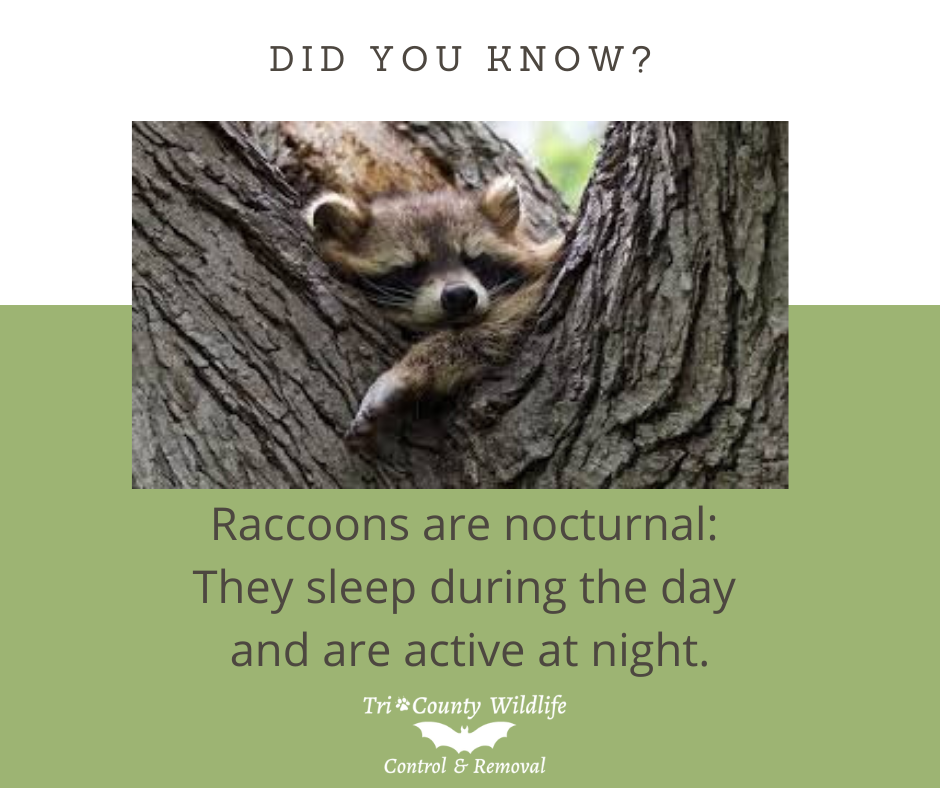
If you have any suspicion that raccoons are in or around your home, taking steps to get rid of them should be your first priority as they pose a number of risks to you, your home, and your family.
Risk #1: Raccoons can damage your property.
Raccoons will not stop at simply digging through your trash; they have also been known to dig up gardens and yards in search of bugs and food. Raccoons will destroy soffits, tear off shingles, remove siding and chimney caps, and take off mushroom vent caps just to gain access into your home. Once raccoons have entered your home their urine and feces can cause additional and extensive damage.
Risk #2: Raccoons can carry several dangerous diseases.
Property damage will be your least concern if you come into contact with an infected or diseased raccoon. While incidents of rabid raccoons attacking humans are rare, it is probably not something you want to risk since raccoons are the number one carrier of rabies, which can also spread Canine Distemper.
Raccoons also carry leptospirosis, a bacterial disease that can be transmitted to humans and pets via contaminated water and soil. Raccoons infected with this disease pass the bacteria in their urine, and can cause kidney damage, liver failure, and more problems, even death in humans.
Raccoon droppings pose another threat altogether. If a raccoon has Raccoon Roundworm, the roundworm eggs are shed in the raccoon’s feces. These eggs can either be ingested or even inhaled!
Risk #3: Raccoons may attack pets, in addition to people.
Raccoons have been known to attack pets, injuring large dogs and easily killing small dogs, cats, and other household pets such as rabbits. If a raccoon has attacked you or your pet, you should seek medical attention immediately and will likely need to be vaccinated against rabies.
How to Prevent/Get Rid of Raccoons:
At this point you may be asking yourself “is there anything I can do if raccoon’s have become an outside nuisance?” Well, there are some behavioral modifications that can be taken as a first step to end your raccoon problems.
Step 1: Remove pet food that is kept outdoors, especially at night.
Step 2: Keep trashcans secured or locked.
Step 3: Electric fences may keep yard/garden protected.
If you are asking yourself “what do I do if raccoons are inside my home?” Well, in addition to the risk of disease, and despite their seemingly adorable appearance, raccoons have very sharp claws and teeth and can be awfully aggressive and dangerous. Therefore, if even one raccoon has entered your home, it is best to hire a professional to trap and remove these animals. Tri-County Wildlife Control will not only remove the raccoon, but also seal all entrance points used by the raccoon to enter your home. After raccoon removal is complete, the animal feces will be thoroughly cleaned and the area disinfected.
Our Final Slice of Advice:
Raccoons are nocturnal and sleep during the day, so if you see a raccoon active during the day, DO NOT approach it. Call Tri-County Wildlife’s 24/7 Emergency Service Line at 914-804-8444!
We service both residential and commercial properties; specializing in the removal of a wide variety of wildlife animals. Our animal removal services provide professional wildlife animal control.
Serving Westchester County, Putnam County and Dutchess County, NY
the National Wildlife Control Operators Association, and the Better Business Bureau